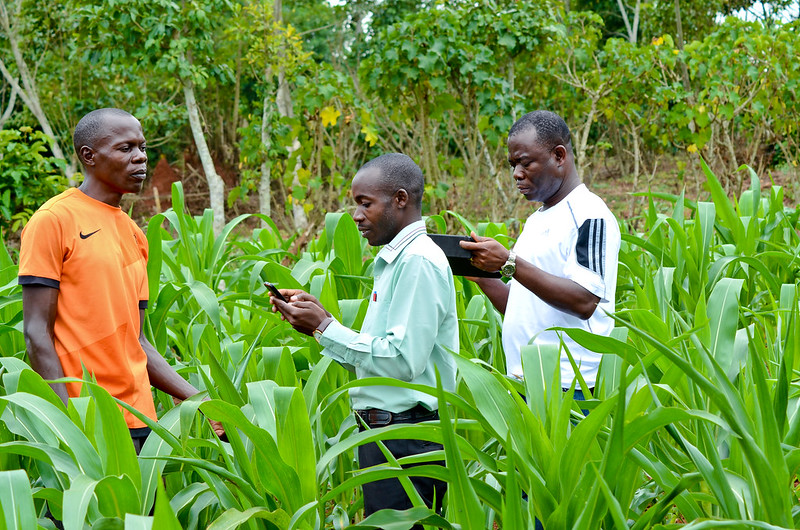Committing to Three Regional AI Excellence Centers by 2028 and Training 20 Million People in Digital Skills by 2030
COTONOU, Benin — In a historic move to position West and Central Africa as a major player in the global digital economy, ministers responsible for digital affairs from across the region have adopted the Cotonou Declaration, unveiling ambitious targets that could transform the continent’s technological landscape.
At a summit held November 17-18, 2025, in Cotonou, Benin, more than 200 participants—including government officials, private sector leaders, young innovators, and international experts—gathered to address the region’s pressing digital challenges and opportunities. Co-organized by the Government of Benin and the World Bank Group, the event resulted in a landmark commitment: establishing three regional AI excellence centers by 2028 and training 20 million people in digital skills by 2030.
A Regional Wake-Up Call
The declaration comes at a critical juncture for Africa’s digital future. West Africa currently accounts for a mere 0.2 percent of global computing capacity, severely limiting research capabilities, public digital services, and local innovation. With Africa representing 16 percent of the global workforce today—a share projected to reach 41 percent by 2100—the stakes could not be higher.
“Without massive investment in computing capacity and skills, Africa will remain a spectator in the digital revolution,” warned Sangbu Kim, World Bank Vice President for Digital Development. His words underscore the urgency behind the Cotonou commitments, which aim to bridge a growing digital divide that threatens to leave the continent behind in the age of artificial intelligence.
Three Pillars of Transformation
The Cotonou Declaration rests on three key commitments that will reshape the region’s digital infrastructure over the next decade.
First, the establishment of three regional AI excellence centers by 2028 represents a strategic investment in homegrown innovation. These centers will serve as platforms for applied research, advanced training, and innovation incubation. They will also support public administrations in developing AI-based services across critical sectors including education, health, social protection, and agriculture. While governments have not yet announced specific deployment timelines, the centers are expected to address Africa’s severe shortage of technical expertise—countries like Burkina Faso and Nigeria currently have only 45 and 38 research experts per million inhabitants, respectively.
Second, the declaration commits to training 20 million people in basic digital skills by 2030, alongside 200,000 specialists in cybersecurity and advanced digital technologies. This massive skills development initiative addresses a fundamental barrier to digital adoption: currently, only 7 percent of micro-enterprises in Africa use smartphones, and just 2 to 8 percent use computers, depending on gender. The training programs aim to create two million digital employment and entrepreneurship opportunities, with special focus on young people, women, and persons with disabilities.
Third, ministers set concrete infrastructure targets for 2030, including affordable and reliable broadband access for 90 percent of the population, deployment of interoperable digital public infrastructure such as digital identity and payment systems, and harmonized frameworks for cybersecurity, data governance, and AI regulation.
From Isolation to Collaboration
For Aurélie Adam Soulé Zoumarou, Benin’s Minister of Digital Affairs, the approach must fundamentally shift from fragmented national efforts to coordinated regional action. “The time for isolated initiatives is over,” she emphasized, reflecting a new spirit of collaboration that permeates the declaration.
To ensure accountability, each member state will designate a national focal point to coordinate implementation between national and regional levels. A common monitoring framework and annual reviews will track progress in digital transformation, with indicators covering digital inclusion, affordability, service quality, skills, employment, and digital trust.
The declaration also calls for National Digital Compacts—country-led frameworks that will align reform objectives, financing needs, and strategic partnerships with the private sector around shared goals. These compacts are designed to mobilize both public and private investment, creating a unified approach to building Africa’s digital future.
African Solutions for African Challenges
A cornerstone of the Cotonou Declaration is its emphasis on African-led AI innovation. Rather than simply adopting technologies developed elsewhere, the initiative prioritizes developing regional computing, cloud, and data infrastructure that can support AI solutions tailored to Africa’s specific development priorities.
Benin is already leading by example, deploying AI in agriculture, health, education, and public services. One notable innovation is a speech recognition model for the Fon language, designed to improve access for rural and elderly populations who may not speak colonial languages.
The regional approach aims to avoid deepening global digital divides while ensuring that AI solutions strengthen resilience and address local needs. By 2028, ministers expect to see significant progress in specific areas: halving the average cost of data, reducing the digital usage gap by one quarter, ensuring 70 percent of rural households have access to affordable internet, and extending broadband coverage to 90 percent of the population.
Challenges Ahead
Despite the ambitious vision, significant challenges remain. Financing the transformation will require substantial mobilization of both domestic and international capital. The success of the declaration, as World Bank officials noted, depends on better coordination among donors and partners to align resources effectively, as well as clear communication of progress to strengthen political commitment and attract investment.
Ousmane Diagana, World Bank Vice President for West and Central Africa, emphasized the human dimension of the transformation. “We must create quality jobs to avoid a deep digital social divide,” he said, highlighting concerns that without inclusive growth, digital transformation could exacerbate existing inequalities.
The declaration explicitly places youth, persons with disabilities, and women at the heart of Africa’s digital future, recognizing that true transformation must serve and empower all segments of society.
A Historic Turning Point
The Cotonou Declaration aligns with the African Union’s 2030 objectives to ensure universal and affordable broadband access, build a single African digital market, and fully seize opportunities offered by emerging technologies. By creating a harmonized continental roadmap, the initiative amplifies the impact of national reforms and positions West and Central Africa to compete in the global digital economy.
As the summit concluded, ministers expressed gratitude to President Patrice Talon and the Government of Benin for hosting the historic gathering. With strong political will, clear targets, and a commitment to inclusive growth, the region is positioning itself as a rising hub of digital innovation and investment.
“Together, we commit to making Cotonou 2025 a turning point in Africa’s digital and AI trajectory,” the ministers declared, setting the stage for a transformation that could reshape the continent’s economic and social landscape for generations to come.
The world will be watching as West and Central Africa embarks on this ambitious journey. The stakes are high, but so too is the determination to build a digital future that is truly African—inclusive, innovative, and designed to serve the needs of more than 400 million people across the region.




